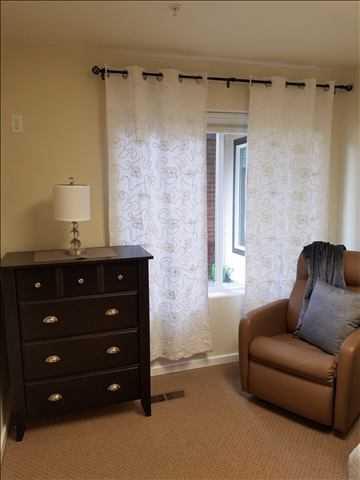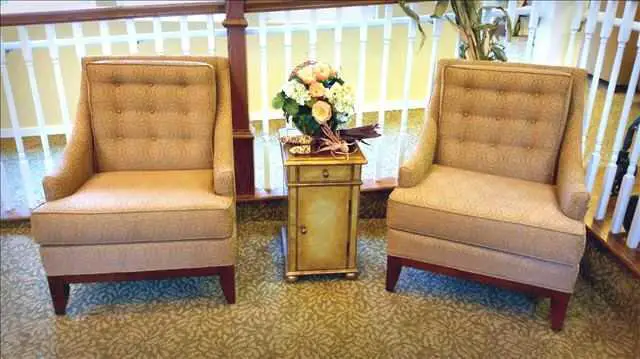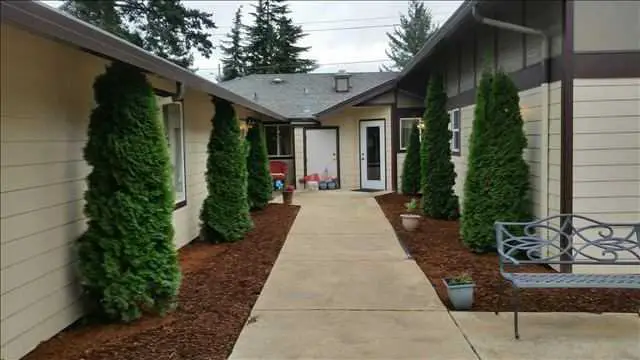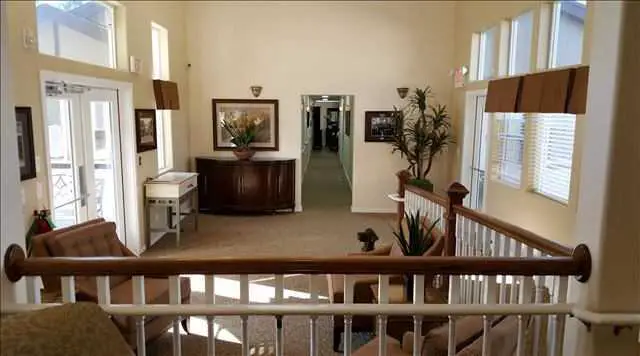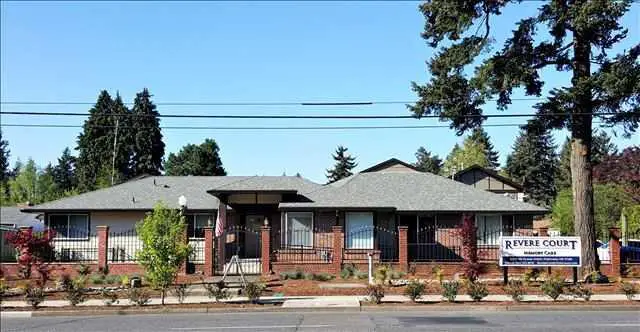Revere Court of Portland specializes in caring for adults who have Alzheimer’s disease and related forms of dementia. There are many benefits from choosing Revere Court for your loved one with memory loss. We recognize the challenges that come to those facing memory loss and we encourage our residents to live in the moment. We hope that for our residents and their families, choosing Revere Court provides peace of mind and relieves the caregiver stress and burnout that is all too frequent. We want our residents and their families to enjoy life without having to worry about the stress of dealing with Alzheimer’s and dementia.
Revere Court has developed unique operational protocols to enhance quality of life for residents, emphasizing security and safety in our settings. We offer an appropriate range of life-affirming and encouraging tailored to each person’s abilities and cognition.
The dementia programs at Revere Court incorporate the latest disease research findings, including aromatherapy, touch therapy, music and pet therapy, among others. Revere Court is designed with natural lighting, way-finding cues and devices, specialized furnishings, fabrics and colors to help reduce confusion. Exterior areas are beautifully landscaped and secure. Our dining and nutrition program incorporates the latest research on what is needed for individuals with memory loss.
When loved ones are diagnosed with dementia or Alzheimer’s disease, help is needed for them to continue to feel useful and to control loneliness, depression, anger, or agitation. Activities keep neurons firing in the brain, but dementia inhibits choosing and following through on activities on their own. Whether your loved one is living at home, at an assisted living center, Alzheimer’s retirement home, or is involved in an Alzheimer’s day care program, there are activities to boost the quality of life for dementia patients. Begin with activities that the person has enjoyed in the past. Here are some suggestions from the Revere Court activity center:
- Watch for boredom from too simple activities, or frustration if too hard
- Keep it short, simple, with few instructions
- Be patient! Watch your facial expressions or raised eyebrows
- Keep activities routine, organized, and structured
- Limit activities to 45 minutes or less
Brain-stimulating activities for dementia patients such as these improve psychological well-being and encourage social participation:
Creativity : Coloring, painting, arts & crafts, listening to music, playing rhythm instruments, singing songs, hula dancing
Cooking/Kitchen : Wash & peel vegetables, shell peas, break beans, make popcorn; copy recipes onto cards and find pictures, make a grocery list
Daily Activities : Bathing, brushing teeth, getting dressed, eating
Gardening : Plant seeds and bulbs, pull weeds
Housework: Fold towels, sweep, set table, rake leaves
Photo and scrapbooking activities : Look through photo albums, create a scrapbook, look at old greeting cards and letters
Physical activities : Short walks, simple exercises, toss a large ball
Puzzles and Games : Bingo Press (numbers on cards are in numerical order to avoid confusion), object trivia (describe, facts), easy crossword puzzles, word searches with large type, jigsaw puzzles with large pieces, simple card and board games
Reading: Read aloud, look through magazines and books with pictures, read Bible or Bible stories, short story collections
Seasonal Decorating: Help decorate tree, string popcorn, put decorations up and take down
Social : Visit with family & friends, attend adult day care activities, talk to pets
Sorting and Organizing: Sorting & organizing M & M, colorful beads, small hardware items, nail polish/lipstick, buttons, coins, organize pantry.

 ,
, 
Real Estate Agent
Grayden Economides
Coldwell Banker Bain

